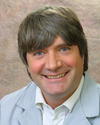STEM CELL TRANSPLANT REVERSES EARLY-STAGE MULTIPLE SCLEROSIS
 |
| Dr. Richard Burt |
Researchers from Northwestern University’s Feinberg School of Medicine appear to have reversed the neurological dysfunction of early-stage multiple sclerosis patients by transplanting their own immune stem cells into their bodies and thereby “resetting” their immune systems.
“This is the first time we have turned the tide on this disease,” said principal investigator Richard Burt, MD, chief of immunotherapy for autoimmune diseases at the Feinberg School. The clinical trial was performed at Northwestern Memorial Hospital where Dr. Burt holds the same title.
The patients in the small phase I/II trial continued to improve for up to 24 months after the stem cell transplant and then stabilized.
They experienced improvements in areas in which they had been affected by multiple sclerosis including walking, ataxia, limb strength, vision, and incontinence. The study will be published online January 30 and in the March issue of The Lancet Neurology.
Multiple sclerosis (MS) is an autoimmune disease in which the immune system attacks the central nervous system. In its early stages, the disease is characterized by intermittent neurological symptoms, called relapsing-remitting MS. During this time, the person will either fully or partially recover from the symptoms experienced during the attacks. Common symptoms are visual problems, fatigue, sensory changes, weakness or paralysis of limbs, tremors, lack of coordination, poor balance, bladder or bowel changes, and psychological changes.
To read more visit http://www.northwestern.edu/newscenter/stories/2009/01/burtms.html






